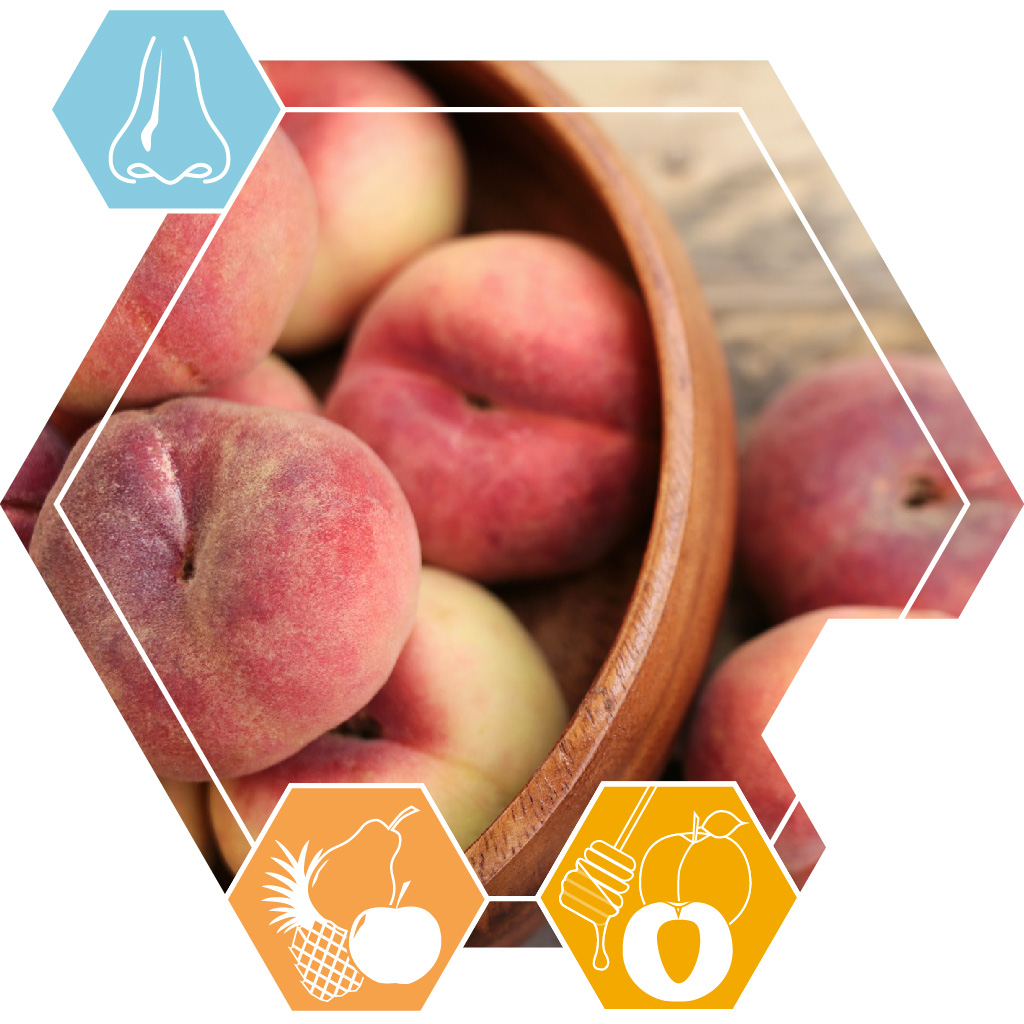Description
Aldehyde C14 peach is an aromachemical for use in, for example, perfume, cosmetics, soap, and air fresheners.
Attention!
Please read all information below and the general product information before purchasing.
Not intended for use in food, vape liquids or other internal use.
Intended to be mixed with other fragrances: on its own the scent can be dull or even unpleasant.
Do not use undiluted on the skin: it is a raw material, not a finished product.
Use
Aldehyde C14 peach has an odour reminiscent of peach. The scent can be dominant, so making a dilution of, for example, 10% can be useful, this can be made with, for example, DPG or TEC. Typical use is in fruit accords, especially peach and apricot. You usually use less than 1% of this substance in the fragrance composition, but a (much) higher dosage may be appropriate, especially in certain accords. It combines well with other lactones and with musks. In perfumes it is mainly a base note, it is stable in many products, including soap.
Store in a cool, dry, dark place and out of the reach of children.
Properties
Aldehyde C14 peach is a colourless to pale yellow liquid at room temperature. The substance has a fairly long shelf life. It occurs in nature, but for use as a fragrance the synthetic version is used.
The name aldehyde C14 suggests that this is an aldehyde, but it is not at all. The name is due to the battle that manufacturers of new fragrances had with each other in the first half of the 20th century. By calling the substance an aldehyde, the competition had no direct clue where to look. That is why nowadays it is often added "So Called": supposedly, not a real aldehyde. A better name, also commonly used, is gamma undecalactone.
This fragrance will not smell good to everyone: especially in its pure form and without other fragrances. It is also conceivable that sometimes it works and other times it doesn't, one batch works and the other batch doesn't.
Technical details
Density: 0,94
Log p: 3,6
Vapor pressure: 0,3 Pa
Melting point: - 9 °C
Boiling point: 299 °C
Molar mass: 184
Packaging
The 10 and 50 ml packaging is made of brown glass with a black cap. The 250 g package is made of aluminium with a white cap. Closing is always with regular caps, for dosing small quantities we recommend the use of plastic pipettes.
Sustainability
The biodegradability in the environment is not great and the substance can be harmful to aquatic organisms. On the plus side: very little is often needed in a fragrance composition.
Dangers
Aldehyde C14 peach is classified as a hazardous substance, with the following characteristics:
WARNING
H412 - Toxic to aquatic life with long lasting effects.
An allergic reaction to this substance is unusual, but cannot be ruled out.
Codes
Item number: 23061
Dutch name: Aldehyde C14 Peach
EC number: 203-225-4
EU CAS number: 104-67-6
CAS number TSCA: 104-67-6
FEMA number: 3091
INCI: GAMMA-UNDECALACTONE




